![]()
Stephanie Misa (b. 1979)
About the artist
Born in Cebu City, Philippines, Stephanie Misa (US/ PH) lives in Vienna, Austria where she graduated from the Academy of Fine Arts Vienna in 2012 in Performative Arts & Sculpture with Prof. Monica Bonvicini. She has a Masters from the Interactive Telecommunications Program, Tisch School of the Arts, New York University. She is currently a Lecturer at the University of Applied Arts Vienna (Artistic Strategies). Her work consistently displays an interest in complex and diverse histories, relating to these topics through her video work, sculpture, installations, prints, and through her writing. Her current artistic research looks at the persistence of languages relegated to its oral form, and the activation of this “orality” outside the usual educational modes of instruction— its evolution, cannibalism, appropriation of terms, and creative becomings. She has exhibited her work at the Secession (Vienna), Heidelberger Kunstverein, Depo (Istanbul), Kunstraum Lakeside (Klagenfurt), 9th Bucharest Biennale, KW Institute for Contemporary Arts (Berlin), Museum of Impossible Forms (Helsinki) Yuka Tsuruno Gallery (Tokyo), Gundula Gruber Gallery (Vienna), Lamont Gallery (US), Nha San Collective (Hanoi), Artery (Manila), Galerie 5020 (Salzburg), Sewon Art Space (Jogjakarta), C4 Projects & BKS Garage (Copenhagen), Kunstraum Niederösterreich (Vienna), VBKÖ (Vienna), and the Gymnasium Gallery (UK), to name a few.
Work being shown at ATM
Name: An altar for the fleshy tongue (2023)
Location: The Holden Gallery
Media: two channel video installation (7’05”), bespoke wallpaper, parafin wax chicken feet candles, wax cylinder record, electric candles, plastic flowers
Description: An Altar for the Fleshy Tongue draws attention to colonial processes of erasure. Starting point is the inquiry whether languages can be held within the body across generations, and if so, what tools do we need to re-awaken such dormant knowledge? This inevitably leads the artist to look at other languages that grow in communities (and outside of institutional read/write frameworks), that are in danger of erasure, and those that have gone but left traces. To counter the exclusionary and oppressive processes of the coloniser’s language, An Altar for the Fleshy Tongue deploys the perspective of the persistence of orality of the mother tongue as a resilient strategy of indigenous communities to practice an alternative way of being-knowing-doing that is as entangled as it is embodied.
